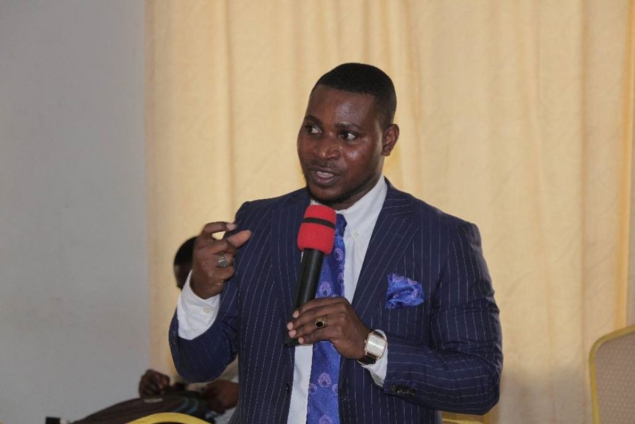The Alliance for Social Equality and Public Accountability (ASEPA) has asked the government to rescind its decision to purchase oil from the world market using gold.
Instead, it called on the government to put in place measures to strengthen the local currency that had depreciated against the US dollar by 50 per cent this year.
Mr Mensah Thompson, Executive Director of ASEPA who made the call, said barter trading gold for oil would deplete the country’s forest reserve.
He said this while addressing a news conference on the 2023 Budget Statement and Economic Policy of the Government, in Accra, on Monday.
The government last week disclosed that it intends to purchase oil from the world market using gold instead of the dollar due to the depreciation of the Cedi against the US dollars.
Official data also shows that Ghana's gross international reserves have fallen from $9.7 billion at the end of 2021 to around $6.6 billion at the end of September 2022.
Mr Thompson explained that gold was a commodity which had an extremely high price volatility on the world market and indicated that should the value of the commodity (gold) decline on the world market, government would require more gold to make the purchase.
“The sad situation about this is that Ghana has an oil refinery which has been abandoned since 2017.”
He added that: “The volatility of gold prices set another stage for the fast depletion of the mineral resources the country has if the prices of the commodity fall.”
Mr Mensah Thompson also urged the government to revise the 2.5 per cent VAT rate as maintaining the current rate would worsen the already precarious economic situation of Ghanaians.
He said: “Inflation is currently at 40.4 per cent, Producer Price Index sits at 61.7 per cent, the 2.5 per cent increase in VAT would skyrocket prices even further in such a precarious situation which would fuel inflation to unprecedented levels.
“In response to the skyrocketed inflation in 2023, the Central Bank would automatically increase the Policy Rate to curb inflation, this would worsen cost of borrowing in 2023, people would not be able to borrow due to the high interest costs, those who would be able to borrow risk falling into a debt trap, NPL sitting on the books of banks would skyrocket leading this country into a recession.”
He also emphasized the need for the government to cut down on expenditure to avoid incurring more debt.
The government, among other things, froze recruitment, purchasing vehicles and printing calendars to cut down on its expenditure.
Latest Stories
-
Ghana and Seychelles strengthen bilateral ties with focus on key sectors
6 mins -
National Elections Security Taskforce meets political party heads ahead of December elections
10 mins -
Samsung’s AI-powered innovations honored by Consumer Technology Association
29 mins -
Fugitive Zambian MP arrested in Zimbabwe – minister
47 mins -
Town council in Canada at standstill over refusal to take King’s oath
58 mins -
Trump picks Pam Bondi as attorney general after Matt Gaetz withdraws
1 hour -
Providing quality seeds to farmers is first step towards achieving food security in Ghana
1 hour -
Thousands of PayPal customers report brief outage
2 hours -
Gary Gensler to leave role as SEC chairman
2 hours -
Contraceptive pills recalled in South Africa after mix-up
2 hours -
Patient sues Algerian author over claims he used her in novel
2 hours -
Kenya’s president cancels major deals with Adani Group
2 hours -
COP29: Africa urged to invest in youth to lead fight against climate change
2 hours -
How Kenya’s evangelical president has fallen out with churches
3 hours -
‘Restoring forests or ravaging Ghana’s green heritage?’ – Coalition questions Akufo-Addo’s COP 29 claims
3 hours

